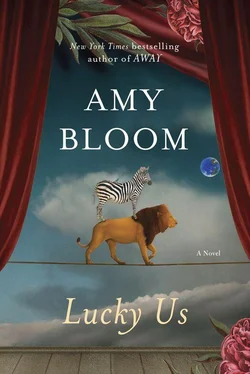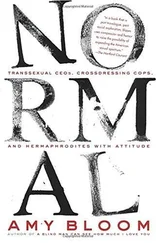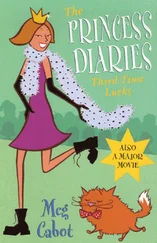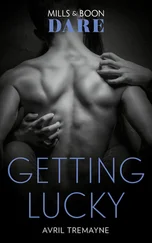So, I’m a married man, once more and now, with kids. Don’t tell Reenie. Call me Karl Hauser. Throw some rice my way, kiddo.
12 I’m Beginning to See the Light
EDGAR WAS IN A BAD WAY. HE HAD TO TURN SIDEWAYS TO SEE out of his right eye and his balance was off. He was having trouble with all the words he loved. The right, necessary words had come to him his whole life. Les mots justes. In the worst weather, in the worst possible circumstance, he’d always known what to say, and now those glamorous, undulating multisyllabic beauties he’d built his life on were failing him, wandering away as soon as they appeared. He drove Joe Torelli off to the hinterlands of the Bronx and spent three hours in the Mott Haven public library, looking up his symptoms. The Little Blue Books hadn’t been any real help, although they were reassuring; he didn’t have venereal disease or polio.
HE DIDN’T EXPECT CLARA to stop taking care of herself just because he wasn’t right. She did her vocal exercises before she went to work, she did her hair, and every day she rubbed the ointment into her skin: hairline, forehead, eyebrows, nose, cheeks, around her lips, onto her lips. Edgar knew she didn’t bother anymore with her stomach and thighs. The ointment was like gritty Vaseline, green sludge in a milk-glass jar as big as a box of salt. When he looked in on her, gripping the doorway to keep upright, Clara was working it into her wrist, rubbing the thin lines of white, of worse than white, of nothing.
“Concordia.”
Clara smiled and kept rubbing at her wrists. He had said to her that it wasn’t worth it to hide the vitiligo from him. He said it was a divine mark of something, a tattoo, a lasso of love. “Lasso of love” had made her smile.
“Yes sir, that’s my baby, Concordia with the vitiligo. A Fats Waller number, if only he’d known you.”
However, I’m convinced, completely, fully, firmly convinced,
You’re the only one for me!
“Rest a little,” Clara said. “You oyster, you.”
EVERY TIME EDGAR CLOSED his eyes, he dreamed about the past. He dreamed about his life with Charlotte in Windsor, Ohio. He dreamed about his childhood in Chicago. He dreamed about Shorty George at the Savoy. He dreamed about Chez Paree and the Chez Paree Adorables. Jeanette, Gracie, and Harriet. They used to let him into the dressing room at intermission. Gracie threw her black gloves and short black skirt at him and he collapsed in the corner, struck down by red-hot desire and embarrassment. He dreamed about dancing with Clara, the way people had danced when he was a boy, like Vernon and Irene Castle. Sophie Tucker was singing “A Little Bit of Bad in Every Good Girl.”

“DID I EVER TELL you about my first wife?” Edgar said, poking at the tapioca pudding Clara’d made. He pushed it around the bowl, coating the sides, to make her think he’d eaten some. Nursery food. He had to laugh at himself. He was going to keep up his Englishness, all childhood rose gardens and Tennyson, and keep quiet about his true self, until he dropped dead from whatever was making him so dizzy, dim, and half blind.
“Go ahead,” Clara said. “Tell me about your first wife.”
She washed out the bowl and cleared the table. She never asked him about his childhood. Clara was a smart woman and a suspicious one. Edgar wondered if she really believed that he was an English aristocrat, fallen on hard times and then harder ones. Charlotte had believed it, but Charlotte believed everything any strong-minded person ever told her. Edgar had made a killing in the early days of Prohibition and left Chicago right on time. He’d managed to lose his Maxwell Street accent and hoist himself up to the better kind of people, with the help of a good suit and the Lobb shoes and gold watch he bought at a pawnshop. He found a man who taught at Windsor College, who drank too much and needed a friend. Edgar became that friend and then he became a visiting professor in elocution and rhetoric and then he married Charlotte. Just as his mother had said, “ Is gut tsu zain klug, is besser tsu zain masidich. It’s good to be smart, it’s better to be lucky.”
SOME NIGHTS, WHEN HE was lying very still, so there was no vertigo and no nausea, and in the dark he didn’t worry that the blindness was getting worse (which it was), Edgar wanted to say to Clara, We’ve met. When you were a little girl, your brother Smoke used to bring you on his rounds, and sometimes we crossed paths. I worked for Jake Solomon, fifty cents a day, and your brother worked for whoever the Negro gangster was. I can see Smoke now, rolling an oak barrel of hooch through Bronzeville, his skinny arms working like pistons and you sitting on the top step of the nightclub stairs, watching Smoke come along. You swung on the brass railing, the tip of your little tongue sticking through that gap in your front teeth, where I can stick my tongue now and feel the tiny bite of your teeth on either side. I used to take a handful of mints from the maître d’s stand — that was just about my whole lunch some days — and I’d give you a mint every time I saw you and you’d smile but you never said a word. Clara Williams, Smoke Williams’s baby sister, from Armour Square in Chicago. I knew you then and I know you now. At night, this was the most comforting thought he had.
“MY WIFE CAME FROM a very good family. The Reardons of Ohio. I had gotten quite a good position at Windsor College, elocution and rhetoric. Charlotte’s father was the president. That man sat at the same grand old desk, in the same grand old wing of South Hall, for forty years. I thought he’d outlive me. Charlotte graduated from Windsor the year I arrived. Her mother had passed several years before, so her father needed Charlotte to play …” The word “hostess” had just dropped out of his verbal lineup.
It was tempting to say that Charlotte was beautiful. It’d be good for Clara to hear that, that someone young and beautiful had loved him. Charlotte had been crazy about Shakespeare and sweet as a kitten, and just twenty-one, and perfect, the way youth is. She had wavy brown hair that she pinned up most of the time, and when girls were going to barbers and getting bobbed, Edgar and her father forbade it, and that was the only thing they ever agreed on.
Clara, at two or twenty, would never let him tell her how to wear her hair.
He can’t remember the exact color of Charlotte’s eyes anymore but she had a nice, old-fashioned figure, with soft, large pale-pink breasts and a tiny waist, small even after Iris was born. She had the most beautiful arms, slim, smooth, perfectly rounded. He did everything he could to keep her in white sleeveless evening dresses.
“She was just a lovely woman. No one admires this anymore but she was very feminine, very … a woman.”
Clara struck a match on the stove and lit an Old Gold. He should stop now, but he kept going.
“I didn’t bring much, I’m afraid. I was an assistant professor and she had the Reardon name, which was not insignificant in Ohio. Lots of family money, and an inheritance to come, and, I think I may have said, my family was nothing but an old English name. The very picture of genteel poverty, and of course I had no people in America at all.” He knows that this is what he has meant to say, that it sounds slick and smooth inside of him, and even elegant, after a fashion, but he has had to simplify it, in order to say it and all that’s left is, I married a rich girl.
Clara slipped off her loafers and stretched. She did her exercises and vocalized for about a half hour. She bent over and touched the floor with her flat palms. Edgar, in the old days, even just a few months ago, would have hugged her from behind, pulling her to him, while she laid her forearms against the floor. Stop bothering me, she’d say, but she always laughed and went limp in his arms.
Читать дальше













